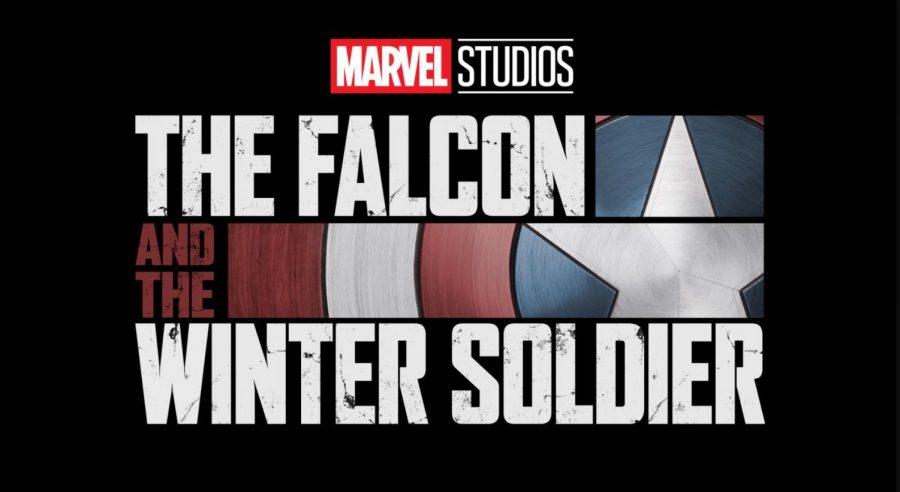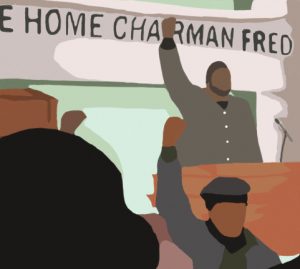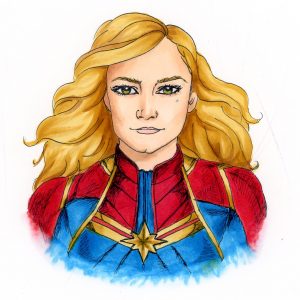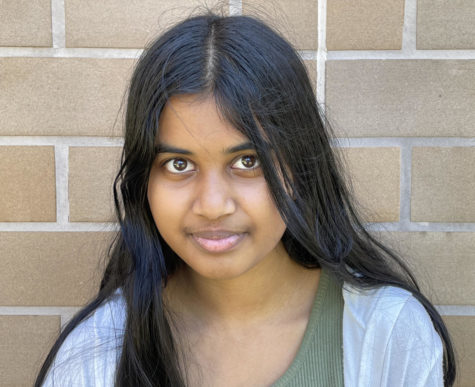“The Falcon and the Winter Soldier” connects to real-world issues
June 18, 2021
Warning: Minor spoilers about the show.
From March 19 to April 23, Marvel released weekly episodes of “The Falcon and the Winter Soldier” on the streaming service Disney+. The new series picks off from where “Avengers: Endgame” had left the characters Sam Wilson (Anthony Mackie) and Bucky Barnes (Sebastian Stan) after the previous Captain America had decided to retire from his superhero life.
From the start of the first episode, it’s clear that Sam is uncomfortable with being handed Captain America’s shield, because of the mantle and responsibility that comes with it. He hands it over to the government for safekeeping and continues with his Falcon duties.
Meanwhile, Bucky is still trying to escape the demons of his past life as the Winter Soldier. He wakes up with nightmares of all the innocents he’d killed while under HYDRA’s influence, and is required to see a government-mandated therapist to live a near-to-normal life.
As can be expected, trouble ensues in the form of a group only known as the Flag Smashers which is an anti-nationalist group that wants things to return to the way they were before the five-year Blip (period during which half of the galaxy’s population ceased to exist).
This new threat is what reunites Sam and Bucky in their titular show: “The Falcon and the Winter Soldier”.
At first glance, it’s easy to see that the show is nothing like the beloved “WandaVision”, which had been a fresh burst of creativity in a sitcom styled world, and is going back to the former roots of the action-packed Marvel movies. However, the show isn’t your average superhero source of entertainment. It’s making an effort to connect to the real-world issues present today.
In an interview with Entertainment Weekly, Kari Skogland, the director of the series, discussed what it meant for Sam Wilson, a black man, to pick up the shield for a country with so much stigma around race.
“We wanted Sam to engage in both a public and private conversation of what it means for a Black man to pick up such an iconic historically white symbol,” she said to Entertainment Weekly. “By starting with his acknowledgment of how important it is as a symbol, and that it is connected to a bygone era, Sam opens the door to the idea that what defines a hero today is not the same ideal as it was when Steve first picked up the shield.”
In one of the stigma-charged scenes of “The Falcon and the Winter Soldier”, a police officer automatically assumes that Sam is bothering Bucky when the two get into a heated argument. He only lays off once he realizes that Sam Wilson is the superhero Falcon, and ironically, it’s Bucky who needs to be taken in by the police.
But this brings up another point, implying that the police officer thought that it would be okay to automatically suspect that Sam was disturbing Bucky (a white man) if Sam hadn’t been famous. The unfortunate truth is that circumstances like these are present in the real world.
On May 25, George Floyd was killed while in police custody, after attempting to buy cigarettes with a forged $20 bill. According to the New York Times, “[their reconstructed] video [of the scene] shows officers taking a series of actions that violated the policies of the Minneapolis Police Department and turned fatal, leaving Mr. Floyd unable to breathe, even as he and onlookers called out for help.”
After Derek Chauvin, the police officer who had knelt on Floyd’s neck for over nine minutes, was found guilty for second-degree unintentional murder, third-degree murder, and third-degree manslaughter, the scene with Sam and the police officer feels much more relevant.
Despite the fact that certain ethnicities and groups of people have been generalized or categorized under labels like “terrorists”, “refugees”, or “thugs”– the series tries to show the damage which these stereotypes do.
The show takes place during the aftermath of the reversed Blip, which means that the government organizations are trying to force out immigrants to their former countries just to secure a home for the people who’ve returned from the five-year-long gap.
At one point, Sam even poses a counter-question to one of these organizations tossing around labels: “Your peacekeeping troops carrying weapons are forcing millions of people into settlements around the world, right? What do you think those people are gonna call you?”
He even goes on to say that the labels are “often used to get around [this] question.” It’s a vital scene to emphasize how important it is to hold the necessary conversation regarding race.
Although there have been complaints to not turn the Marvel universe to surround topics like politics and racial stigma, recent events have shown that ignoring the problem doesn’t make it go away.
NBC News reported that “Black children are five times more likely to be incarcerated than their white peers, according to a report from The Sentencing Project, a research and advocacy center aimed at reducing incarceration.” In addition to this, police officers have been found to “criminalize Black children” for behavior usually common amongst members of that age group, such as “mouthing off or fighting at school.”
These issues don’t get much attention unless the story is purely centered around the ethnic group facing racism. The MCU is crossing another milestone to make their stories relevant to the problems today, while still showing that being a superhero doesn’t make them go away.
However, “The Falcon and the Winter Soldier”, deals with more than just issues surrounding race.
Enter Bucky Barnes, who is a man out of his time. He has been a soldier without any rest for the past 77-81 years, depending on whether or not you include the years he’d been reduced to atoms with Thanos snapping the Infinity Gauntlet.
However, Bucky is traumatized by an insane amount of baggage and past demons.
He wakes up with nightmares of the people he murdered, and what’s even worse is that he didn’t have control over his actions. Bucky had been controlled by the anti-national group up until the events of “Captain America: The Winter Soldier”, and although his mind is now his to use, he still faces guilt over the lives he’d taken.
He also has to navigate civilian life without the help of his best friend, Steve Rogers, and doesn’t attempt to seek help for his PTSD, despite having a therapist mandated by the U.S. government.
However, Bucky isn’t quite ready to forgive himself yet, and doesn’t even realize that he was a victim rather than the villain.
His frustration with Sam relenting the shield to the government seems pushy and over the top at first, but in an emotional outburst, he reveals the underlying pain he’s been dealing with on his own. In that moment of emotional unclarity, he says, “Steve believed in you … maybe he was wrong about you, and if he was wrong about you, maybe he was wrong about me.”
Although the show was more oriented towards Sam’s story, Sebastian Stan portrayed Bucky’s struggle with mental health well with the limited screen time it got and branches the gap between media and mental health seamlessly.
In his article, “The Winter Soldier And His Battle With Post-Traumatic Stress Disorder”, Daniel Buccafusca, a person diagnosed with PTSD, wrote, “the way Stan pauses with each word, the way his speech is slowed when speaking about the past and how quickly his emotions can turn from calm to chaotic in the snap of a finger are all common elements of PTSD.”
“The Falcon and the Winter Soldier” has clearly put great effort into crafting its characters and conflicts, in a way to be relevant to the real people of today’s world.
Although the show mostly delivered, it disappointed with the plot’s pacing which felt off in a few places as well as having a predictable villain reveal. The cinematography on the other hand, was well executed, and the storyline was easy to follow and understand.
As a character-oriented show, it put a lot of time and effort into developing the arcs of the main characters as well as key side characters, and the final product was well-rounded and satisfactory.
The two leading actors, Anthony Mackie and Sebastian Stan, had brilliant chemistry together, and made the easy banter they had all the more delightful to watch. It helped deliver more insight into how Sam and Bucky’s friendship was being developed, and added extra humor to their scenes.
Seeing as how “Captain America 4” is being confirmed to pave the way for Phase 4 of the MCU with Mackie as the leading man, it’s safe to say that the series has done its job quite well. “The Falcon and the Winter Soldier” is now free to stream on Disney+.





